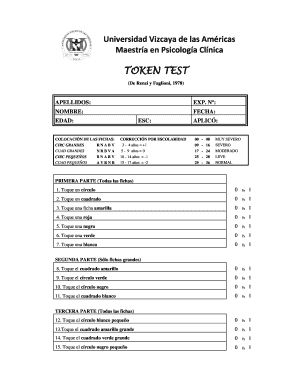How Long to Keep Unemployment Paperwork?

Navigating the world of unemployment can be overwhelming, especially when it comes to understanding how long you should keep various unemployment documents. Whether you're currently receiving unemployment benefits or looking to organize your records, it's crucial to know the importance of retaining certain paperwork for future reference. This comprehensive guide will provide you with practical advice on the duration you should keep unemployment-related documents, along with reasons why maintaining this documentation is essential.
Why Keep Unemployment Documents?

Unemployment benefits can provide a much-needed financial cushion when you're out of work. Keeping your unemployment paperwork is important for several reasons:
- Proof of Income: These documents serve as evidence of income during periods of unemployment, which can be vital for various purposes including tax filing, loan applications, or proof of financial history.
- Future Job Verification: Employers might ask for verification of your employment history, and these records can help in confirming the gaps in your employment record.
- Audit Support: If you're ever audited by tax authorities, having documentation can substantiate your income during unemployment.
- Legal Protection: Should disputes arise regarding your unemployment benefits, proper documentation can be a legal safeguard.
- Budget Planning: Understanding your past benefits can aid in better financial planning, especially during periods of unemployment.
How Long to Keep Different Unemployment Documents?

The duration for which you should retain different types of unemployment documentation varies:
Initial Claim Documents

When you first file for unemployment, keep these documents for at least:
- 3 Years: This includes your initial application, any correspondence from the unemployment office, and your determination letters.
📋 Note: These documents are particularly useful if you need to appeal a decision or if issues arise regarding your eligibility.
Weekly/Bi-Weekly Certification Forms

These are records of your ongoing eligibility for benefits:
- 1 to 3 Years: Keep these, as well as proof of your job search efforts, to demonstrate compliance with state requirements.
💡 Note: Retention periods may vary by state, so it’s wise to check your state’s specific regulations.
Unemployment Tax Forms (1099-G)

The IRS provides this form to report your unemployment compensation:
- 7 Years: Keeping these for at least seven years after you receive your tax refund can protect against any potential audits or tax disputes.
📌 Note: The 1099-G form is necessary for accurate tax filing and should be kept with your tax documents.
Appeal Documents

If you’ve appealed a decision:
- Indefinitely: Store these documents until the issue is resolved and keep them permanently for legal records.
Managing Unemployment Documentation

Here are some tips to help you organize and store your unemployment paperwork:
- Create a File System: Use physical or digital folders labeled by document type and year.
- Regular Audits: Review your files periodically to ensure all relevant documents are stored properly.
- Digital Backups: Scan or photograph your physical documents and store them digitally for easy access and backup.
- Check State Regulations: Different states might have unique requirements for document retention, so consult your state's unemployment agency for guidance.
🔍 Note: Always keep original documents for critical matters like appeals, as photocopies might not be sufficient for legal purposes.
Effective organization of your unemployment documents not only ensures you're prepared for potential audits or legal issues but also aids in stress-free record-keeping. While digital solutions are handy, keeping physical copies can be advantageous for certain situations. Regularly checking and updating your records helps maintain accuracy in your unemployment-related documentation.
Maintaining your unemployment records involves a balance of organization, understanding legal requirements, and planning for financial and legal scenarios. Remember to review and adjust your records based on any changes in your state's laws or your personal situation. By following these guidelines, you ensure that you are prepared for any potential future issues related to your unemployment benefits.
What should I do if I lost my unemployment documents?

+
If you’ve lost your unemployment documents, contact your state’s unemployment office immediately. They can provide you with copies or instructions on how to retrieve or replace the lost records.
How long do I need to keep proof of my job search?

+
Keep your job search proof for the duration specified by your state’s unemployment laws, typically from 1 to 3 years, to comply with benefit eligibility requirements.
Can I keep digital records instead of paper copies?

+
Yes, digital records are acceptable; just ensure they are backed up and accessible. However, for legal matters, original physical documents might be required.